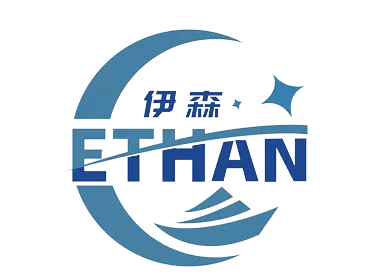The Critical Role of Global Freight Forwarders in Customs Clearance
When international packages cross borders, they frequently hit roadblocks at customs checkpoints that end up slowing things down and driving up expenses for everyone involved. That's where global freight forwarders come into the picture, acting as navigators through this complicated maze of paperwork and rules. These professionals know all the ins and outs of customs regulations, handle the mountain of required documents, and maintain good working relationships with border officials. Their real value comes from preventing those frustrating delays and getting products across the finish line faster, which means fewer headaches for importers and exporters trying to keep their supply chains running smoothly.
By leveraging their knowledge and networks, freight forwarders provide peace of mind to exporters and importers, reducing uncertainty and streamlining international trade processes.
Expertise in Regulatory Compliance and Documentation
Navigating Complex Customs Regulations
Customs regulations differ widely between countries and can change frequently. Global freight forwarders stay updated on the latest rules, tariffs, and import restrictions to ensure shipments comply with destination country requirements. Their deep understanding helps avoid costly penalties and shipment rejections.
Preparing Accurate and Complete Documentation
One of the main reasons for customs delays is incomplete or incorrect paperwork. Freight forwarders meticulously prepare and review necessary documents such as commercial invoices, packing lists, certificates of origin, and customs declarations. Proper documentation accelerates customs inspections and clearance.
Managing Special Requirements and Certifications
Certain products, like pharmaceuticals, food, or electronics, require additional certifications or permits. Freight forwarders coordinate the procurement of these documents and verify compliance with health, safety, or environmental standards, preventing hold-ups at customs.
Advanced Technology for Real-Time Customs Management
Electronic Data Interchange (EDI) and Digital Filing
Global freight forwarders utilize electronic data interchange systems to submit customs declarations digitally. This method reduces errors and processing times compared to manual paperwork, allowing customs officials to review and approve shipments more efficiently.
Real-Time Customs Status Tracking
With integrated logistics platforms, businesses can track customs clearance status in real time. Freight forwarders provide updates on inspections, hold-ups, or approvals, enabling proactive management of potential delays and timely communication with clients.

Strong Relationships with Customs Authorities
Leveraging Established Customs Networks
Experienced freight forwarders maintain close working relationships with customs brokers and officials in multiple countries. These connections facilitate smoother communication and quicker resolution of issues, benefiting clients with faster shipment release.
Handling Customs Inspections and Queries
When shipments are selected for inspection, freight forwarders act as intermediaries to provide required information, arrange documentation, and negotiate on behalf of their clients. Their professionalism helps minimize inspection times and associated delays.
Risk Management and Duty Optimization
Accurate Tariff Classification
Misclassification of goods can lead to overpayment of duties or fines. Freight forwarders use specialized knowledge to classify products correctly according to the Harmonized System (HS) codes, ensuring proper duty assessment.
Utilizing Trade Agreements and Duty Drawbacks
Freight forwarders help businesses benefit from free trade agreements and special customs programs by applying the correct rules of origin and documentation. They also assist in reclaiming duties through drawback schemes, effectively reducing overall import costs.
Comprehensive Support Beyond Customs Clearance
Coordination with Carriers and Warehousing
Freight forwarders seamlessly integrate customs clearance with transportation and warehousing services. By managing the entire supply chain, they prevent bottlenecks and ensure timely delivery from port to final destination.
Providing Consultancy and Training
Some freight forwarders offer consultancy services to educate clients about customs regulations and best practices. This proactive approach helps businesses prepare shipments better, avoid common mistakes, and maintain compliance.
FAQ
What documents are required for customs clearance?
Typically, documents include commercial invoices, packing lists, bills of lading, certificates of origin, and any special permits related to the product. Exact requirements vary by country and shipment type.
How long does customs clearance usually take?
The duration varies widely based on shipment type, destination, and accuracy of documentation. Efficient freight forwarders can often reduce clearance times from several days to just hours.
Can freight forwarders handle customs clearance for all countries?
Most global freight forwarders have extensive networks and partnerships that allow them to manage customs clearance in most countries worldwide.
What happens if customs officials find discrepancies in the shipment?
Freight forwarders work with customs to resolve issues, provide additional information or documentation, and negotiate solutions to prevent costly delays or penalties.
Table of Contents
- The Critical Role of Global Freight Forwarders in Customs Clearance
- Expertise in Regulatory Compliance and Documentation
- Advanced Technology for Real-Time Customs Management
- Strong Relationships with Customs Authorities
- Risk Management and Duty Optimization
- Comprehensive Support Beyond Customs Clearance
- FAQ


